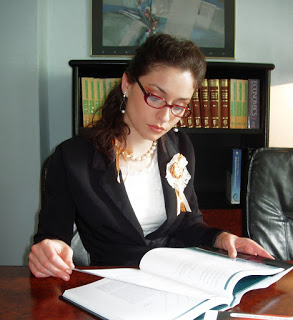Achieving Success: Working With a Professional Realtor in Prince William County, Northern Virginia and Beyond
 Much like working with a doctor or an attorney, working with a professional realtor is all about building a relationship based on respect and trust.
Much like working with a doctor or an attorney, working with a professional realtor is all about building a relationship based on respect and trust.- Stay local. You are always better off working with a local agent to list your property and typically better off with a local buyer agent as well. A local listing agent will know the pulse of the area, be up on market trends and have a network of other realtors to go to share new listing information or buyer needs with. You want the biggest bang for your buck, so use the experience of an agent who is tapped into where you live or want to live. You should find quicker success and the opportunity to create the next chapter in life.
- Listen and evaluate what your realtor recommends. As a professional, a realtor has assisted with the buying and selling of homes, hopefully for many years. Although no two cases are the same, the process and possible outcomes are more familiar to them than to you. Empower yourself with their knowledge and evaluate their recommendations so you can make an informed decisions.
- Know what you want or don’t want from your realtor. Share your dreams as well as your concerns. Sometimes knowing what you don’t want will answer the question of what you do want. Are you looking for an agent that specializes in a certain niche, such as retirement communities or home staging? Or, are you a first-time homebuyer who needs more guidance? Successful realtors understand market trends and may have access to information not available to the general public. Many times a property you thought would be unavailable may be at the agent’s fingertips. So speak up and let your realtor know what you desire!
- Be sure you’re getting a team and know that you become a part of that team. An established realtor works with other reputable professionals such as trusted lenders, title companies and estate professionals to give you a great team experience. As a principal to the transaction, you become a member of the team and must do your part to communicate with the team, provide documentation and make yourself available. No one person can do it all. It’s the team effort that gets everyone to the finish line. Make sure you know the players.
- Talk about communication. How accessible is your agent and does he/she communicate in a way that is comfortable for you? Consider your communication style and how you want to be contacted by your agent. Do you prefer email, phone calls or personal interaction? Is your agent available when you are? Does your agent have evening and weekend hours? Most importantly, does your agent follow up in a timely manner? Real estate bids can come in quickly and are often time sensitive. An agent that doesn’t respond in a timely manner could be a problem.
- Give and take information. It’s okay to emphasize any knowledge and experience you may have to help your agent start to really understand both your short and long term goals. Conversely, ask about any concerns you think may have been forgotten in the busy initial contact stage, as well as throughout the transaction. There are no stupid questions!
Remember, a professional realtor can be as important to your life transition as any other professional you work closely with. A caring, experienced realtor wants to be there for you through all your important home and property ownership milestones. With a relationship based in mutual trust and respect, there is no limit to what can be achieved.
1,652 total views, no views today







